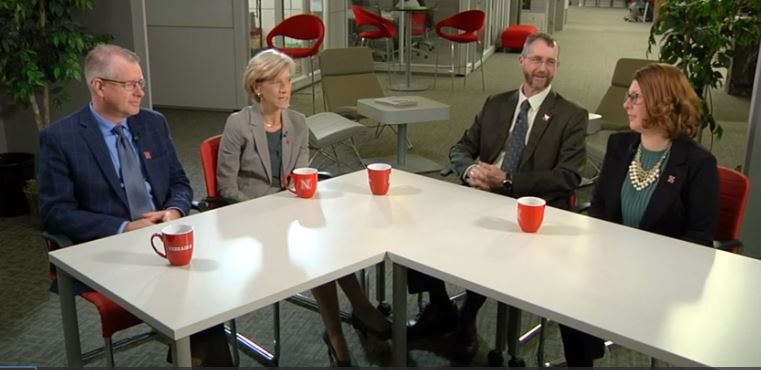
After more than 30 listening sessions, 422 comments received and hundreds of hours poring over each word and detail, the committee chosen to write the University of Nebraska–Lincoln's N2025 Strategic Plan has reached its finish line.
“We spent the entire fall visiting with different groups because we wanted to hear what was resonating and what was not, and how do we make it better? We had over 400 different comments and we read every single one and thought about how that comment could be reflected in the document," Angie Pannier, co-chair of the N2025 team and Maxcy Professor of Biological Systems Engineering, said. "I’m really proud of the outcome. I feel like we have written a plan that represents the university, and is uniquely for the University of Nebraska–Lincoln.”
The university community will see the finished document when it is released during the State of Our University Address Feb. 14 at 10:30 a.m. at Nebraska Innovation Campus. Watch a conversation with the N2050 Strategy Team here.
Chancellor Ronnie Green announced in February 2019 a faculty-led initiative to develop a five-year strategic plan reflecting the work of the N150 Commission, which created a bold 25-year vision for the university.
Green tapped four faculty to lead the process: Pannier; Rick Bevins, Chancellor’s Professor and chair of psychology; Shane Farritor, Lederer Professor of Engineering; and Sue Sheridan, Holmes Professor of educational psychology and director of the Nebraska Center for Research on Children, Youth, Families and Schools. The committee consisted of 31 faculty and staff.
The four chairs decided early on that it would be team effort, not a division of labor.
“We wanted to avoid the concept of silos,” Sheridan said. “It would have been very easy for us to identify research goals or student experience goals, but we wanted to have a very cohesive, integrated plan that would move us forward collectively as a university.
This approach meant that the team spent many hours together, hashing out every detail, but the inclusive process – which included listening sessions with the faculty, students, staff, alumni, policymakers and stakeholders – has created a plan guided by the principle that “every person and every interaction matters.”
“I think that’s the kind of university we want to be and that fits very well with the state of Nebraska,” Farritor said of the plan’s title and overarching theme. “It’s a goal we can push forward in the next five years.”
The plan is the foundation of the N150 Commission’s 25-year vision for the university, but also will play a role as a new budget model is adopted.
“There is a practical way of looking at it because the Chancellor is going to use this strategic plan to make decisions,” Bevins said. “He’s been very clear that this plan is going to be used to inform the budget and make decisions, but we should also care because it is aspirational. It’s going to make us bigger, bolder and stronger.”